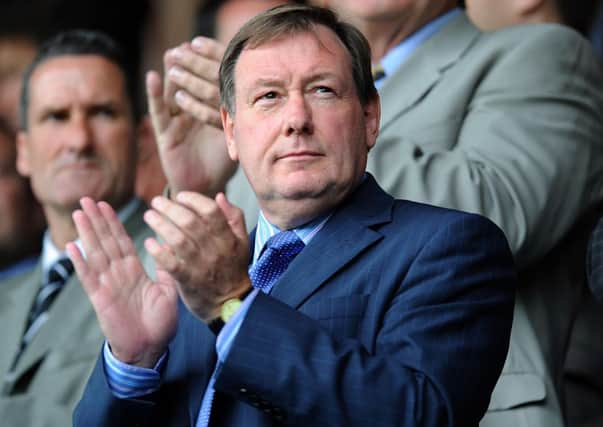Storrie: Pompey record stands up to scrutiny


Storrie, who held the positions of chief executive and executive chairman during an eight-year spell at Fratton Park, resigned from the club in March 2010 after the then Premier League Blues went into administration.
During that time, the former Pompey chief – along with former manager Harry Redknapp and owner Milan Mandaric – was cleared of tax evasion charges related to his time at the club.
Advertisement
Hide AdAdvertisement
Hide AdThe trio were charged as part of an investigation into transfer dealings at Pompey, but all three were found not guilty and cleared in court in February 2012.
Since then Storrie has acted as chairman and manager of Hampshire Premier League side Liss Athletic, while the Blues now operate in League Two.
But his role at Liss has been put on hold after New South Wales-based Mariners appointed the 62-year-old to help restore their flagging fortunes.
Doubts exist over the four-times Grand Finalists commitment to playing their home games on the Central Coast, while the team currently sit third from bottom in the table.
Advertisement
Hide AdAdvertisement
Hide AdAnd with Mariners fans struggling to trust their club, Storrie was asked in an interview with Fox Sports, why he was the man supporters should put their faith in.
Storrie, however, said his record at Fratton Park ‘stood up to scrutiny’.
‘At Pompey I went in with Milan Mandaric, and ran a tight budget and we were profitable in the Premier League,’ he said.
‘My long-term record stands up to scrutiny I think.
‘The last couple of years we had problems, because decisions were made to bring in expensive players – decisions fully supported by Sacha.
‘We sustained heavy losses, but he supported that.
Advertisement
Hide AdAdvertisement
Hide Ad‘The situation changed when there was a financial crisis for him, and he couldn’t support it any more.
‘I had the ability to sell players to recoup the money but, sadly, the banks took all that back against the loans.
‘If that had come back into the club, we could have reduced the debt, but the banks withdrew the money.
‘That is something that could happen to a lot of clubs in the Premier League.’